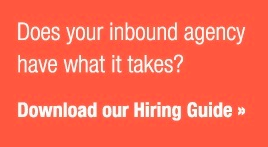 When client companies work with marketing agencies they don't hand over the proverbial keys, walk away, and say, "See you in six months." They sign up for a collaborative relationship. And when both parties clearly define roles and implement well-designed editorial calendars, the relationship can thrive. However, when things like approval processes drag on, eroding time to market and creating cost overruns, the relationship predictably deteriorates.
When client companies work with marketing agencies they don't hand over the proverbial keys, walk away, and say, "See you in six months." They sign up for a collaborative relationship. And when both parties clearly define roles and implement well-designed editorial calendars, the relationship can thrive. However, when things like approval processes drag on, eroding time to market and creating cost overruns, the relationship predictably deteriorates.
This problem becomes particularly acute for marketing teams that outsource a considerable amount of content creation and marketing to an agency. With that in mind, we'd like to look at how to create streamlined approvals that optimize this important element of working with an agency.
Understand your goals. Too often client companies say, "Well, the agency knows what they're doing" and gives them free reign. At the same time, the agency, working with total independence, doesn't brief the client on their strategy or goals. For example, the agency may write a blog post that doesn't mention one of the client's products. Of course, writing educational posts is a cornerstone of inbound marketing, but oftentimes this lesson is lost on client companies who view things like blogs as yet another marketing channel. As a result, they object to the post in the approval phase, which only prolongs the process. Therefore, both parties need to understand what they seek to accomplish and how they'll do it.
Set guidelines. Your process will be built on things like an established editorial calendar and style guides. Once you and your agency agree on these inputs, you'll minimize the risk of downstream bottlenecks. Let's again take blog posts, for example. You and your agency agree, in advance, that your typical blog post will be 500-750 words and include two hyper-linked keywords. However, if you don't establish these ground rules at the outset, the approval process can drag out when the agency presents the blog for sign off and you notice that the post is 1,000 words and has four hyper-linked keywords.
Delegate roles and responsibilities. Simple stuff, but nonetheless important. Who approves what, and when? Do you, as the marketing manager, need to approve every blog post or Tweet? Can the agency assume a degree of independence assuming they meet the aforementioned goals and guidelines?
Ask for context. Building upon these aforementioned points, you as a marketing manager may ask your agency to further contextualize their deliverable, whether it's a blog post or a white paper. The point is to ensure that the content fits into your overall strategy. This article, which is geared towards inbound marketers, provides a useful template whereby the blog writer contextualizes the post with a set of key points. Rather than simply emailing a blog post, the writer also provides the client with things like the target keyword, the SEO title, the SEO description, an outline of the post, and, when applicable, a link to a commercial product. Consider asking your agency to provide this kind of corroborating material to ensure alignment with your overall strategy.
Like any process, you'll find that effectively working with an agency isn't just about the process itself, but the inputs and individuals that make up the process. If you plan ahead, establish guidelines, and are transparent about what you want the agency to accomplish, you'll find that many things like blog post can be easily approved with minimal friction or delay. The trick is getting those foundational steps right.
What do you think is the most critical component of a streamlined approval process? Where do bottlenecks most frequently occur? What key elements of this process did we neglect to mention?




